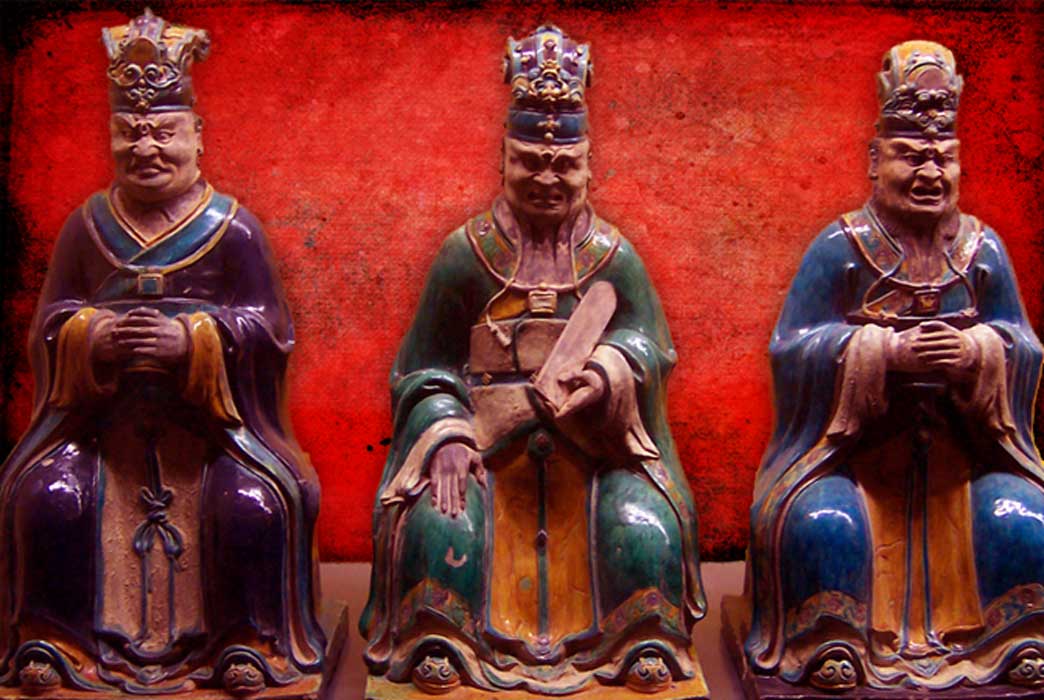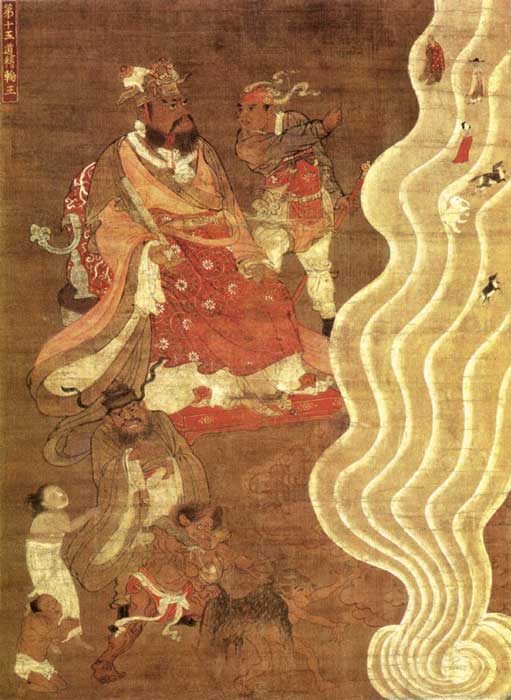
Journey to Hell, Featuring Torture and Never-ending Bureaucracy: Understanding the Underworld in Chinese Mythology
“Each of the criminals is bound to an iron pillar and the ox-headed demon is in the process of administering punishment—using iron or copper blades he peels the skin of the person's face, just as a butcher kills a pig and then flays it.”
This passage is found in a Chinese Shanshu (“good book” or “morality book”) titled Diyu yu-chi (roughly translated as “Record of a Journey to Hell”). The book emerged in tenth century China and talks about the things that one would find in hell which, of course, included many forms of torture.
The underworld in Chinese Mythology, Diyu (literally means “earth prison”), is where the souls of the deceased are held accountable for their actions in life before they are reincarnated. The exact number of levels in Diyu and their associated deities differ between Buddhist and Taoist interpretations. Some speak of "Ten Courts of Hell", each of which is ruled by a judge, and others speak of the "Eighteen Levels of Hell". Each court deals with different punishments and a different aspect of atonement.
However, the underworld in Chinese mythology has an interesting concept that distinguishes it from other cultures. According to the ancient Chinese belief, the underworld is simultaneously a place of vicious physical tortures, and a particularly nasty and intractable bureaucracy— the sixth court of hell, for example, is named “Screaming Torture and Administrative Errors.”
The Capital City of Hell and its Residents
The Chinese underworld is thought to be a duplicate or alternate version of the Earthly realm. It has a city wall, palaces, a hall of justice, and various houses for the ghosts of the dead. Especially important is the housing for the official records, which allow the various judges to determine proper punishments or to occasionally allow someone who dies before their time to be returned to life.
- Descent to the Underworld: The Little-Known Practices and Symbols in Ancient Mythology of the Great Below
- Hell on Earth? Is the REAL location of the Ancient Underworld Right in Front of Us?
- Malevolent Phantoms, Corpse Brides, and Ancestor Spirits: The Ancient Belief in Ghosts
The underworld is teeming with souls who are just passing through on their way to being reincarnated back into the world of the living. These waiting souls are being looked after by their living descendants who burn paper offerings to them at their funerals. The paper offerings include items such as houses, horses, and money; these are meant to ensure that the soul of the deceased will have a pleasant stay in the underworld and enjoy the same facilities there that the living enjoy in the earthly realm.

Souls passing through the underworld pass before the bureaucrats, the Ten Kings of Hell. (Public Domain)
The capital city of the underworld is named Youdu (“Dark Capital”). You can also mean "hidden" or "secluded". Youdu is generally conceived as being similar to a typical Chinese capital city, except that it is pervaded with darkness. Although there are many functionaries which have been believed to inhabit the underworld, the more important individuals are located in Youdu, as the capital city and the seat of the underworld’s government.
The most important feature of this city is the palace of Yan Luo. Beneath him in rank are ten magistrates who serve as judges of the souls of the dead in the Ten Courts of Justice. There are also many subordinate demons which serve to carry out the commands of the judges. These demons are concerned with punishing or processing the souls of the dead for reincarnation.




